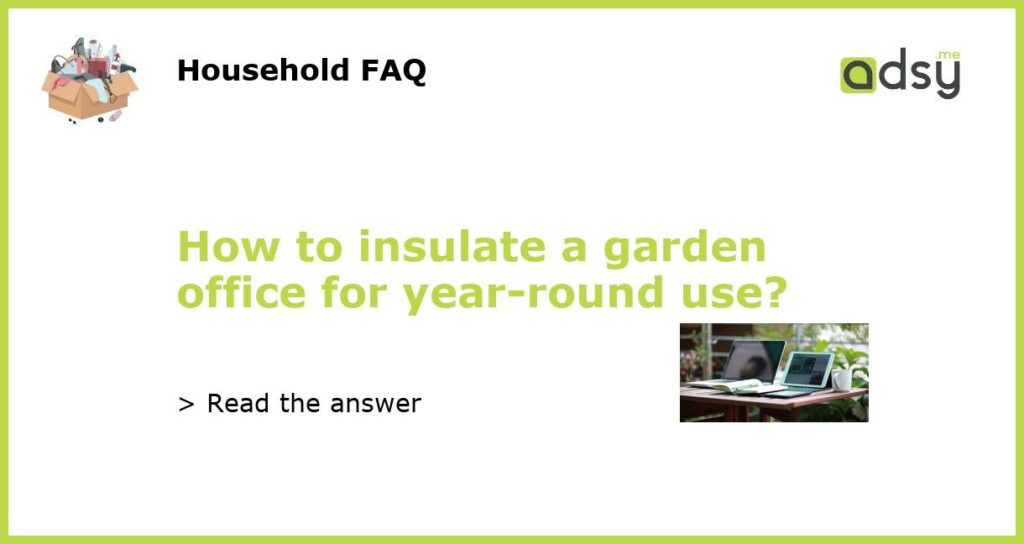Why insulate a garden office for year-round use?
Insulating your garden office is crucial if you want to use it throughout the year. Without proper insulation, the space will get too cold during winter and too hot during summer, making it uncomfortable and unusable. Insulation helps to regulate the temperature, keeping it comfortable and energy-efficient. It also helps to reduce noise from outside and provides better privacy within the space. Overall, insulating your garden office allows you to make the most out of it, regardless of the weather conditions.
Start by insulating the walls
When it comes to insulating your garden office, the first step is to insulate the walls. There are various insulation materials you can choose from, such as fiberglass, mineral wool, or rigid foam insulation. The insulation should be installed between the wooden studs in the walls, ensuring that there are no gaps or air leaks. This will help to prevent heat transfer and maintain a consistent temperature inside the office.
Don’t forget about the roof and floor
In addition to insulating the walls, it is important to also insulate the roof and floor of your garden office. For the roof, you can use insulation boards or rolls, which can be installed either above or below the roof decking. Insulating the roof will help to prevent heat loss through the top of the office. As for the floor, you can use insulation boards or panels, which can be installed underneath the flooring material. Insulating the floor will help to keep the space warm and reduce drafts.
Seal any gaps and cracks
Even with proper insulation, gaps and cracks can still allow air to leak in and out of the garden office. Therefore, it is important to seal any gaps and cracks to ensure maximum energy efficiency. Use weatherstripping or caulk to seal gaps around windows and doors. Apply foam insulation or sealant to fill in any larger gaps or cracks in the walls, roof, or floor. By sealing these gaps and cracks, you can prevent drafts and keep the temperature inside the office consistent.
Consider additional heating and cooling options
While insulation plays a crucial role in regulating the temperature inside your garden office, it may not be sufficient during extreme weather conditions. Therefore, it is worth considering additional heating and cooling options. For heating, you can opt for electric heaters or underfloor heating systems. These can provide extra warmth during colder months. For cooling, you can install fans or air conditioning units to keep the space comfortable during hot summer days. These additional options will allow you to use your garden office year-round, no matter the temperature outside.

